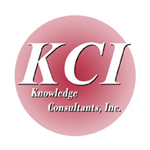Digital Transformation – Leveraging DT Change for Best Value

Overview
 The Transformation Opportunity
The Transformation Opportunity
Better connection to customers and suppliers along with improved efficiency are key goals of digitization. Understanding digital disruption can lead to a clear transformation path for your organization.
Transformation depends on the level of automaton currently in place and the goal you define for transformation. For example, if you are a fully manual organization and set a goal to become a fully digitized organization then you may have a large gap to overcome.
Transformation depends on what is going on in your industry and where technology research money is flowing. So, where do you start? The first step is to assess what automation and digital direction you have today and then identify the opportunities you want to prioritize for the most value.
The coming wave of the digital enterprise
The technologies you choose to apply in your organization determines the degree of success in making the transformation. Proper selection of digital technologies provides the acceleration into the future needed by organizations today. Understanding what technologies are available and where they might be applied in an orderly and efficient manner is significant to successful transformation today.
Identifying the likely needs for digitization is a good starting point but how do you do this? Where do you start? Should you look at what everyone else is doing or develop a plan specific to your organization needs? Maybe you need a mix of both plus some insight into where the technologies are going.
Benefits of attending
Benefits of Attending
- Describe key transformation approaches used today.
- Explain why strategic purpose is needed to identify target of transformation.
- Identify the state of automation and how processes are impacted.
- Describe some best practices for transformation.
- Explain the key factors for successful transformation
- Describe the key digital technologies available today
- Analyze the use of digital technology in your organization
- Define how the digital technologies and transformation can become reality
- Describe some of the most applicable technologies to transformation.
- Define and specify a prioritized approach to technology evolution
Who should attend
Who should attend
Managers and professionals should prepare for the coming changes in the 4th Industrial revolution by gaining an appreciation of the digital changes that are coming. What should we consider in applying digital technologies? What technologies might work best for us and return good value to the organization?
This course is key for business managers, strategic planners, marketing analysts, planning managers, process analysts, business analysts, data analysts and business architects.
Course Outline
Day One Theme: Why Digital Change?
Organization viability and survival requires a digital transformation strategy and approach for survival. Organizations that do not have a path will most likely not survive or will face traumatic change.
Section 1 – It’s Time to Transform
Section 1.1: Where is change coming from?
- Organization strategy changes – the external environment pressure
- Improving performance – efficiency pressure
- Improving outcomes – the results pressure
- Demo Discussion – Assessing Digital Change Pressure
Section1.2: What does it mean to transform?
- Is it automation?
- What gets transformed?
- How do you transform?
- Video Discussion – Understanding Transformation
Section 2 – Technology – Driver of Change
Section 2.1: What are technology waves?
- The coming 4th Industrial Revolution
- Operational needs
- Strategic needs
- Tactical needs
- Video Discussion – The 4th Industrial Revolution
Section 2.2: The Transformation Path
- The core transformation methodology?
- Where does transformation start?
- Ranking transformation options
- Assessing transformation results
- Exercise – Prioritizing Transformation Options?
Day Two Theme: Applying Digital Change
Digital transformation impacts different organizations in a variety of ways. Transformation efforts can take advantage of common transformation approaches and technologies when looking across industries to see how others have made the transition.
Session 3 – DT Applications
Section 3.1: Interfacing to the Market
- Chatbots – the new interface to customers
- Access and search – Providing customer options
- IoT – Sensors to provide alerts
- Video Discussion – Expanding use of Chatbots
Section 3.2: Operations and Logistics
- RPA – Better and more flexible robots
- Autonomous vehicles – Better logistics, safer cars
- Drones – Faster more efficient delivery
- Topic Discussion – The Future: The Partnering Robots and Humans
Session 4 – DT Applications
Section 4.1: Industry Applications
- Healthcare – Emerging Telemedicine, digital records
- Retail – The switch to online
- Government – Increased use of Chatbots for service
- Video Discussion – The Digital Government
Section 4.2: Internal Applications
- Marketing – Who are the potential customers?
- Sales – ‘People who bought this also bought that’
- Analytics – The focus on excellence
- Demo Discussion – Customer Buying Habits
Your trainer
Meet your expert course trainer: Frank Kowalkowski
 Frank Kowalkowski is President of Knowledge Consultants, Inc., a firm focusing on business performance, business analytics, data science, business architecture, big data, business intelligence, predictive analytics and statistical techniques. He has over 30 years of line management and consulting experience in a wide variety of industries. He has been involved with many projects both as a user and purveyor of business analytics. He has worked projects in state and federal government dealing with back office operations, legislative compliance and regulatory compliance. He has worked on the federal level with the national defense department, Coast Guard for drug interdiction and other projects. His background includes a number of industries including manufacturing, distribution, supply chain, banking, insurance, financial institutions, health care, pharmaceuticals, oil and gas and chemicals.
Frank Kowalkowski is President of Knowledge Consultants, Inc., a firm focusing on business performance, business analytics, data science, business architecture, big data, business intelligence, predictive analytics and statistical techniques. He has over 30 years of line management and consulting experience in a wide variety of industries. He has been involved with many projects both as a user and purveyor of business analytics. He has worked projects in state and federal government dealing with back office operations, legislative compliance and regulatory compliance. He has worked on the federal level with the national defense department, Coast Guard for drug interdiction and other projects. His background includes a number of industries including manufacturing, distribution, supply chain, banking, insurance, financial institutions, health care, pharmaceuticals, oil and gas and chemicals.
More recently Frank has been involved in conducting workshops, professional training sessions and assessments of architecture, data science, governance, compliance, risk and process management efforts. He also develops algorithms for analytics tools particularly semantic algorithms as well as data analysis techniques. He is often a keynote speaker, panel moderator and member at international conferences as well as a conference chair, he has written numerous papers and spoken at conferences on a variety of business subjects. He conducts frequent seminars nationally and internationally on a variety of business management, analytics and information technology topics.
He is the author of a 1996 book on Enterprise Analysis. His most recent publications are a featured chapter in the business book “Digital Transformation: Using BPM You Already Own.” for publication in 2017. His chapter is titled “Improve, Automate, Digitize”, he also has a chapter in the business architecture book titled ‘Business and Dynamic Change’ June, 2015 and a chapter on semantic process analytics in the book Passports to Success in BPM published in 2014 all are available on Amazon.
About KCI
Knowledge Consultants. Inc. (KCI)

Knowledge Consultants, Inc. is a professional services firm founded in 1984. KCI provides consulting and professional education services. With over 50 courses taught worldwide, KCI provides the opportunity to develop core strengths in the following certification areas:
- Process Management
- IT Management
- Business Performance Management
- Business Analysis
- Analytical Techniques for Business
- Business and IT Architecture
KCI has expanded its training and consulting efforts internationally into Europe, Southeast Asia and the Middle East. KCI has an outstanding list of current and past clients including many of the Fortune’s 100 companies.
Consulting focuses on the key areas of Business Performance Management, Process Management, Business and IT Architecture, Business Analysis, Using Analytic Techniques for Performance Improvement and IT Management.
Course Details
Prices
- Early Bird PricingBook and pay before 04, August 2020$199.00excl VAT tax 5%
- Standard Pricing$299.00excl VAT tax 5%
Download Brochure and Articles
To learn more and view the course outline fill the form below to download the brochure and related articles.

